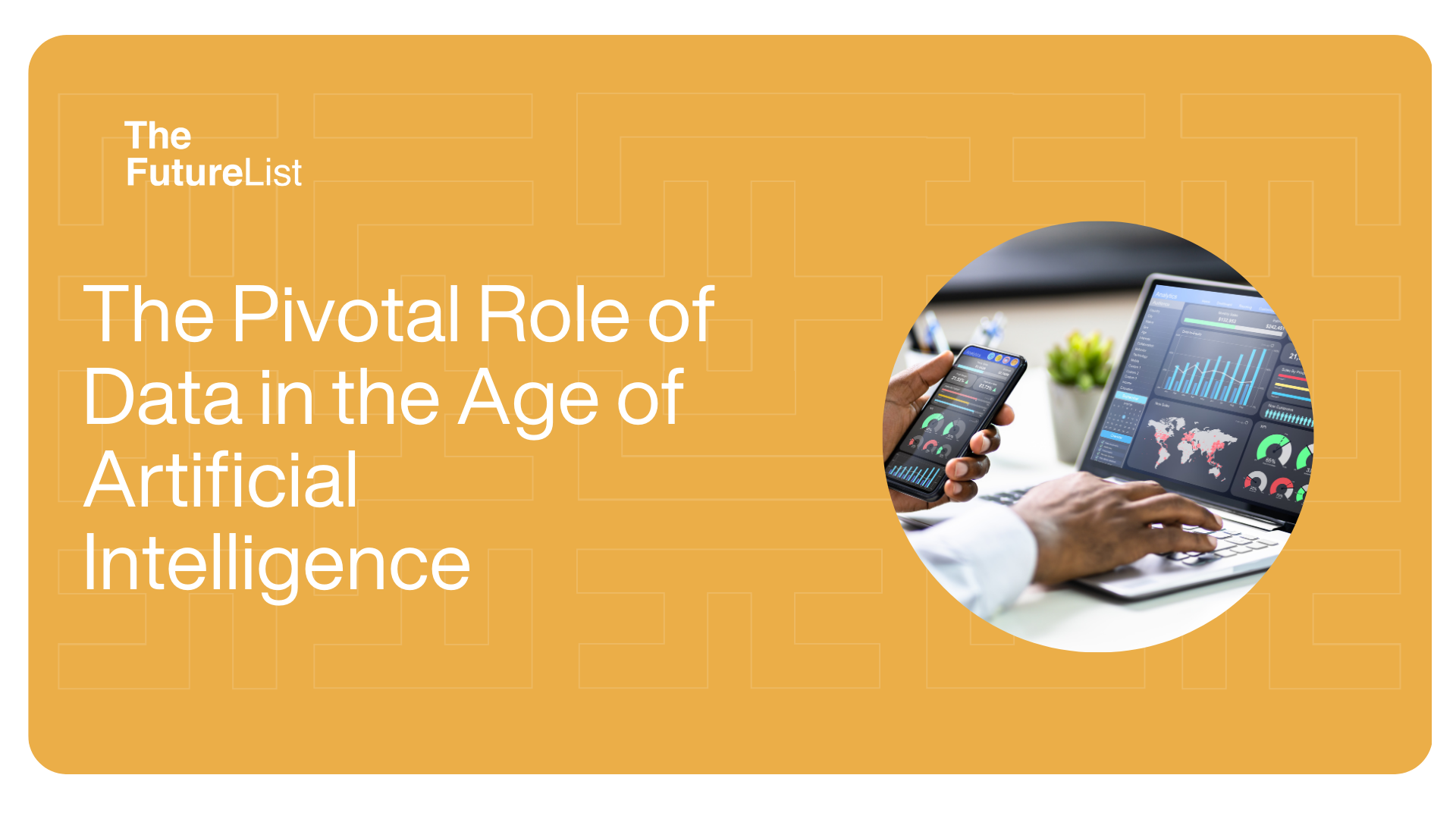
The Pivotal Role of Data in the Age of Artificial Intelligence
Artificial Intelligence (AI) is at the forefront of technological advancements, redefining the way we approach problem-solving and decision-making. At its core, AI seeks to emulate human intelligence processes by employing dynamic algorithms in computational environments. However, the true power of AI lies in its relationship with data, as data serves as the foundation that powers AI, enabling it to learn, reason, and perform tasks effectively.
The Symbiotic Relationship: Data and AI
In essence, AI transforms raw data into meaningful insights by utilising algorithms to discern patterns and extract knowledge from vast datasets—a task nearly impossible for humans to perform manually. This ability to learn and improve over time, thanks to the continuous influx of data, is what makes AI a game-changer.
AI algorithms and models play a pivotal role in data analysis, ranging from simple decision trees to complex neural networks. These algorithms are designed to identify patterns, make predictions, and generate insights based on the data they process. This capability is immensely valuable for businesses, enabling data-driven decision-making and uncovering hidden patterns that would otherwise remain undiscovered.
Empowering Data Analysts for the AI Age
The effective and safe integration of AI into data analysis requires a unique blend of conceptual and technical data skills. Business users and data analysts must adopt a proactive mindset and continuously refine their skills to harness AI’s capabilities fully. AI can significantly expedite the data-driven decision-making process, enhance product quality, and optimise operational efficiency.
Data analysis is inherently nonlinear, often requiring a revisit of initial assumptions as insights evolve. Its validity stems from a rigorous approach rather than immediate results. Given the reliability challenges of AI and the rigorous nature of data analysis, data analysts play a critical role in managing and assessing AI-generated outputs effectively.
Historically, business users faced challenges in utilising data due to their limited data literacy and technical skills. No-code self-serve data analysis promised a solution, but often failed to deliver due to issues like poor data model quality. Furthermore, business users and inexperienced data analysts can draw inaccurate conclusions due to a lack of conceptual knowledge, leading to pitfalls like confirmation bias and the confusion of correlation with causation.
As AI increasingly handles technical tasks, some traditional technical skills’ qualification bar is being lowered. However, data analysts still need to possess a fundamental understanding of code to verify its correctness. Skills like problem definition, formulating questions, and interpreting results remain crucial. Traditional data literacy courses often fail to equip business users with these essential conceptual data skills.
The Changing Landscape of Data Analysis Roles
The traditional hierarchy of data analysis roles is evolving. Historically, junior data analysts would augment the work of senior data analysts, focusing on execution while learning to formulate questions, design solutions, and interpret results. However, AI is disrupting this cycle, as AI can execute solutions designed by seniors effectively, potentially reducing the need for junior data analysts.
The bar for data analysis skills is rising, with some “senior” skills today becoming the new “junior” skills. Data analysts need to fast-track their conceptual and technical data skills and proficiency in using AI systems. The education system must evolve to emphasise problem formulation, solution design, interpretation, and communication, preparing data analysts for the AI age effectively.
The Role of Data in AI Development
Data is integral at every stage of AI development. It shapes the system’s structure and architecture during the design phase. AI systems are trained based on data collected post-design, improving their performance. Data is also used to evaluate the system’s performance, refining algorithms based on feedback. Finally, data plays a role in deploying AI systems and ensuring they continue to function correctly over time.
Using Data for AI
Collecting high-quality and relevant data is essential for AI development. Data can be obtained from various sources such as public databases, web APIs, and user-generated content, and must be properly documented and labelled. Cleaning data by removing duplicates and correcting errors ensures its quality and accuracy, allowing AI systems to use it effectively.
In conclusion, the powerful synergy between data and AI is revolutionising data analysis and decision-making. Empowering data analysts with the necessary skills, redefining roles in data analysis, and emphasising data accuracy and labelling are vital steps to unleash the full potential of AI in the data-driven age. As we move forward, the data-AI partnership promises to shape a more efficient and effective future.
Need a second opinion on how to approach your tech team resourcing plan? Get in touch with the team at Sand Technologies.
Get innovation insights from The FutureList weekly. Subscribe to our newsletter here.
Categories
- Agritech
- Artificial Intelligence
- Biotech
- Blockchain
- Climate Tech
- Data Infrastructure
- Edtech
- Events
- Fashion
- Fintech
- Healthtech
- Infrastructure
- Innovation Memos
- Innovation Scout Program
- Insight
- Insurtech
- Machine Learning
- Martech
- Mobility
- Music and Media
- Partner Offers
- Perks
- Procurement
- Proptech
- Retailtech
- Ridehailing
- Ridesharing
- Robotics
- Space Aviation
- Supply Chain
- Talent
- Telecoms
- Uncategorized
- Venture Capital
- Wastetech
- Women In Tech
Recent Posts
- How AI Surveillance is Shaping Public Safety in Smart Cities
- Innovation Memo with Zencey: Bringing Equitable Healthcare to Africa
- Inside the Software Model Running Modern Harbours
- The Formula for Future Speed: Data-Driven Performance in Racing
- Leveraging Next-Gen Endoscopic Interventions and Innovations for Healthcare